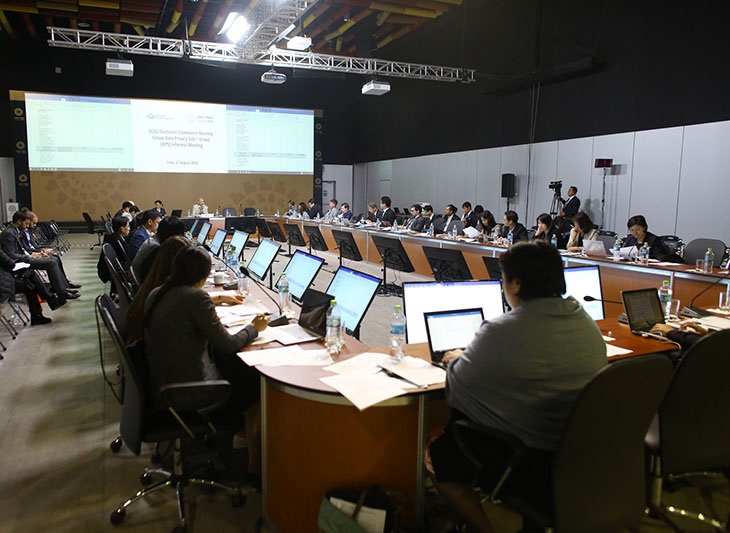APEC Makes Digital Economy Inclusion Push

Digital trade officials from APEC member economies are joining forces with service providers to broaden the development of the sector to combat inequality and growth gaps in the Asia-Pacific.
Officials and industry representatives meeting this week in Lima detailed actions for expanding individual and small business use of electronic commerce as connectivity improves around the region. Emphasis is on leveraging advances in mobile technology and network access to build digital economies that support business growth, employment and better living standards.
“Many Peruvian textile companies are using the internet to contact new buyers abroad for their products,” noted Edgar Vasquez, Peru’s Vice Minister of Foreign Trade, who opened the proceedings. “Electronic commerce is serving as an instrument to promote inclusion, generating new jobs and facilitating access to financial services in remote areas.”
By the end of 2016, 4.8 billion people worldwide are expected to possess a mobile phone, half of them being smart phone users. Spurred by this trend, spending via electronic commerce is expected to increase 30 per cent in the Asia-Pacific during the 2015-2017 period—more than any other region.
APEC economies are weighing the deployment of regulations and public education programs that support the growth of e-banking and payment channels—making it easier for micro, small and medium enterprises, aspiring entrepreneurs and consumers to participate in electronic commerce.
Rules pertaining to the management and application of data, ranging from online transactions to apps, biometrics and GPS information, are also on the table.
“APEC is working to optimize cross-border data flows and privacy protection as building blocks for the growth of digital trade,” said Shannon Coe, Acting Chair of the APEC Electronic Commerce Steering Group, which guides industry policy development in the region.
“The proliferation of standards for efficiently handling data while protecting it particularly benefits small businesses with more finite resources,” added Coe, who is with the United States Department of Commerce.
Measures to facilitate the innovative use of product, service and consumer information within the small and medium enterprise sector, which accounts over 97 per cent of all businesses and half of the labor force across APEC economies, are an additional focus.
“Small and medium enterprises in the region spend well in excess of USD2 billion on cloud services, with an annual growth rate of around 42 per cent, but this is only the tip of the iceberg,” noted Dr Peter Lovelock, Director and Co-Founder of Technology Research Project Corporate.
“There is huge potential for the integration of big data and analytics in electronic commerce that could help businesses better target consumers, reduce overhead costs and improve their bottom line,” he added. “Greater public-private sector engagement to achieve network interoperability, good governance and price points based on a level playing field will be key to breaking new ground.”
# # #
For additional information, or to arrange possible media interviews, please contact:
David Hendrickson (in Lima) +65 9137 3886 at [email protected]
Michael Chapnick +65 9647 4847 at [email protected]
More on APEC meetings, events, projects and publications can be found on www.apec.org. You can also follow APEC on Twitter and join us on Facebook and LinkedIn.

